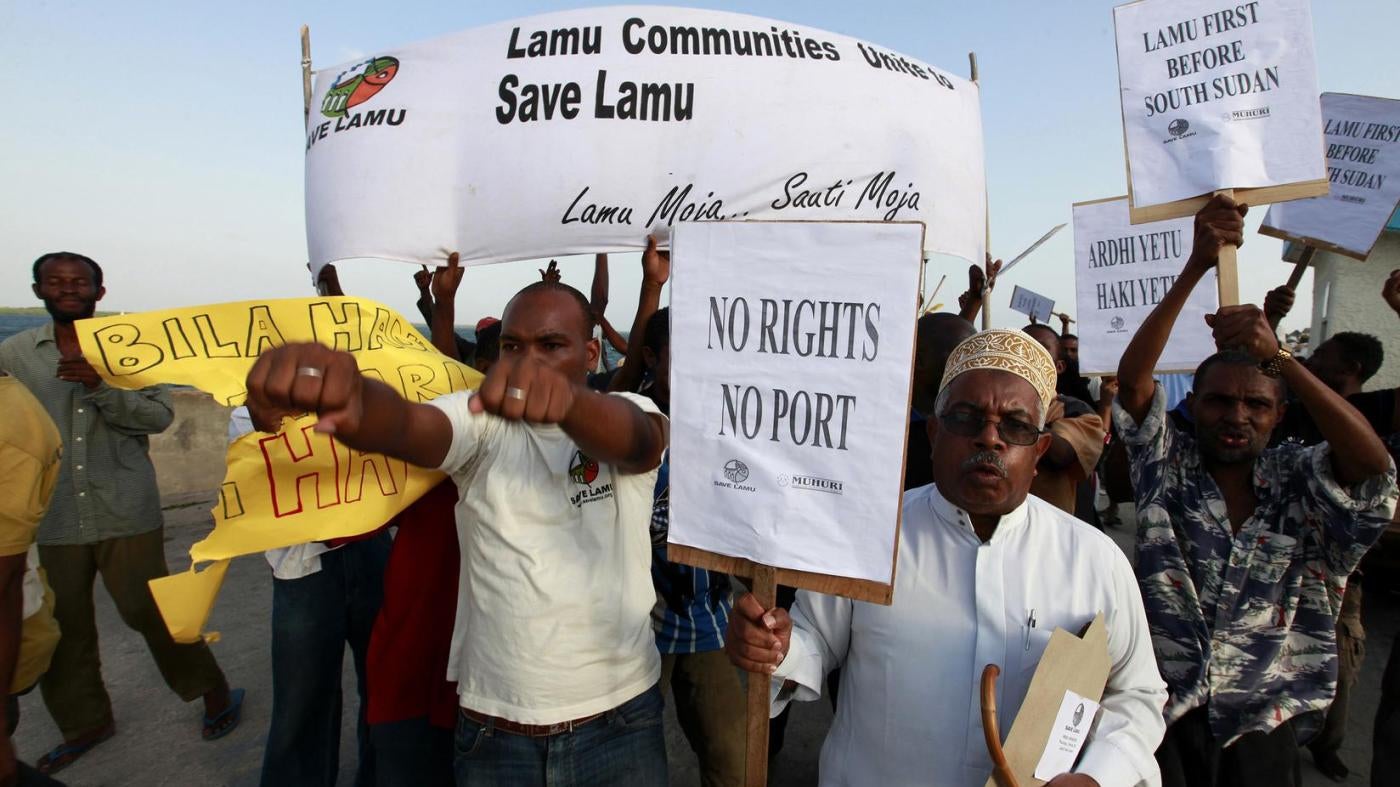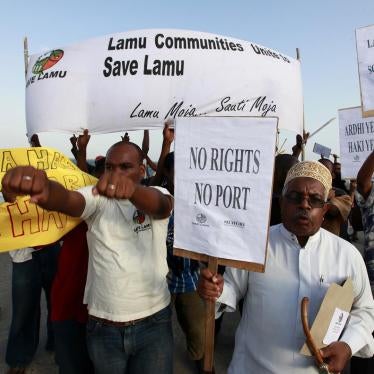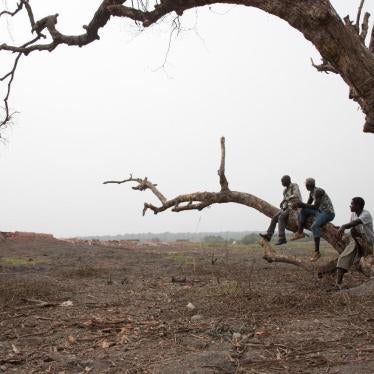Tell me about Lamu and the activists you spoke to.
Lamu county is a beautiful, scenic tourist destination with long white beaches lined with palm trees and hotels and cafes catering to foreign and domestic tourists. The mostly-Muslim population earn their livelihood from fishing along the coast using small boats. The county has a vibrant civil society movement with many small but active community-based organizations.
The activists are everyday people of Lamu. I spoke to activists who until recently were farming, fishing, or running small businesses but are now actively campaigning against many environmental and health problems on behalf of their communities. They make reports at police stations and government offices to help other community members. They convene meetings to gather the views of those most affected by the development and discuss strategies to engage with the leadership.
What are they campaigning for? What threats are they facing?
They are speaking out against environmental problems that they say harm communities living around the LAPSSET project.
They are also concerned about the lack of compensation for those who have had to relocate after their land was taken for the project. Some activists have helped community members confront the local authorities to demand compensation for their land.
The LAPSSET project has affected the fish habitat. The mangrove forest that provides breeding ground for fish has been largely cleared to pave way for ports, depleting the fish population. This has taken a toll on the fishermen’s livelihood. Fishermen have raised concerns about this and faced physical attacks by police when they protested on the street. The activists stepped in and took fishermen to police to report this. They keep going back to the police station to check if there are investigations following their reports.
Some people who spoke out against the project have disappeared, one is believed to have been killed. One activist who was advocating against the building of an airport disappeared two years ago, and no one has seen him since. A farmer was killed because he refused to move from his land. Some activists have organized meetings to discuss and organize around environmental issues related to the project, but state officials came in and disrupted the meetings. When some activists were detained, officers asked why they were speaking out against LAPSSET. State officials warned them about questioning the project.
With activists fearing for their lives and safety, how did you get them to speak freely to you? And how did you verify the information they provided?
My organization is known for working in Lamu and we have worked with activists there for years. Even so, it took time to get them to speak out because some of them have been detained or threatened and are worried. I was keen to make sure their stories were heard.
To verify information, we looked over reports that activists have made in our Nairobi office. We also visited LAPSSET and Kenya’s environmental agency, National Environmental Management Authority (NEMA) offices in Nairobi. We went to Lamu to speak to more people before going to government offices and police stations to check if the cases had been reported. We checked files to verify dates and patterns. We spoke to other organizations who have been following the issues, such as the Muslims for Human Rights (MUHURI), and Haki Africa.
What struck you most about the experience of these activists?
I was impressed and challenged by the resilience and courage of the human rights defenders in Lamu. The LAPSSET project is worth billions of dollars. The activists are members of the community living near the project, and the threats haven’t stopped them.
Further, these activists do not have any training on security. It is by sheer luck that some of these activists who are at the forefront have not disappeared or experienced worse than arrests.
I remember one distressing story about a fisherman-turned-activist. By Lamu standards he is considered wealthy since he owned a boat. He often took others fishing, and during one fishing trip on December 30, 2015, he had six other fishermen in his boat when a Chinese ship, which was much bigger than the fishing boat, rammed into them. The ship was bringing building materials to the port. The fishermen survived but sustained serious injuries. Since it was during the holiday season, government offices were closed, but they reported the incident to the fisheries office in Lamu on January 2, 2016.
This one incident affected seven families, who now had no source of income because of the loss of the boat. They had to pool in their already limited funds towards commuting to a government office to fill out forms that themselves costed more money. No action was taken, so they had to keep going back to the office.
So far, government officials said the fishermen have not been compensated because the accident was not reported immediately. But they could not have reported the matter since government offices were closed. These poor people are being taken around in circles, and their resources are dwindling.
The boat-owner has led the reporting and documentation of the case. The injury on his leg prevents him from fishing or other strenuous activity, so he can barely make ends meet or support his family. But still, he pushes on and keeps knocking on government offices to seek redress.
LAPPSET is an important development project for Kenya and could employ thousands of people in Lamu. Shouldn’t we focus on this rather than the small problems that are bound to occur along the way?
Yes, LAPSSET is a massive development, but at what cost? Should development further impoverish the poor?
When LAPSSET began, it was touted as a boon for the people of Lamu, a source of hope for many who had lived in poverty for generations. The project was to employ many, open up the region for trade and growth. However, in its early years, the project has left many without land or compensation. Fishermen are losing out on their livelihood since the fishing area is now restricted, and their little boats cannot be used further out into the ocean for deep sea fishing.
But people are disappointed and say they are not reaping the benefits of the project. There were promises of educational scholarships for children in Lamu, but even these scholarships go to others who do not live in Lamu now. People who question these issues are threatened; they receive phone calls from people who tell them to stop asking questions. Should development happen at the expense of human rights?
Such a major project should not overlook the rights of the poor communities.





